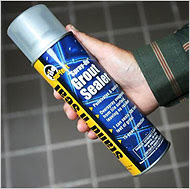Pablo of AskPablo takes on the question of
disposable v. reusable drink containers for coffee (or your beverage of choice). While the results aren't unexpected (for repeat use, reusable is more sustainable), some of the details are interesting:
At 46 uses, the ceramic mug becomes the environmentally responsible choice [over styrofoam]. And after 369 uses, the stainless steel mug also become a better choice than styrofoam.
That's right, it takes a year for that daily cup of joe in a stainless steel mug to even out with the disposable styrofoam, thanks to high resource and production costs. And then there's the paper cup, seemingly more environmentally benign:
24 paper cups are equivalent in material intensity to a stainless steel mug
Wow. 15 times more resource-intense than styrofoam. But as with most environmental choices, it's not even that black-and-white.
Additional dimensions include the recyclability of the materials, their toxicity, the biodiversity of the raw material extraction site, and the working conditions along the supply chain.
And one other thing: you save a lot less environment if you have many reusable mugs. After all, each stainless steel mug you own takes a year to beat a 1-a-day habit of styrofoam.
